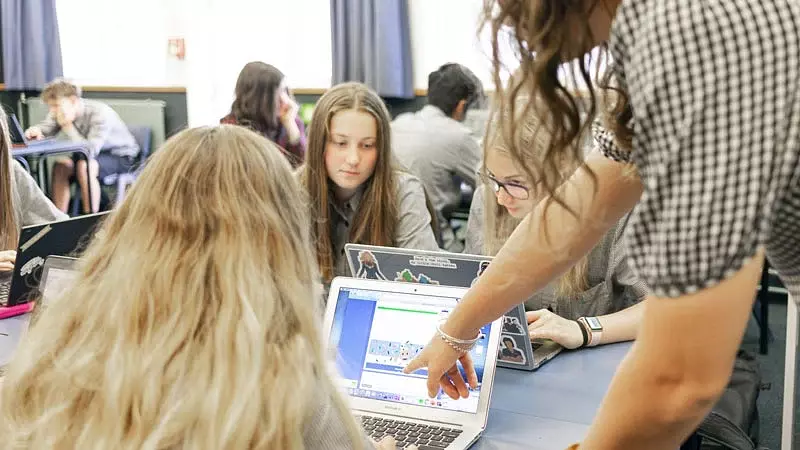Financial education as part of a school’s personal capacity programme may seem an unusual fit, but for St Andrew’s Anglican College, it makes perfect sense. Ruan Van Der Merwe, Head of Commerce and Entrepreneurship, shares his experiences of introducing financial literacy to improve student life outcomes.
Setting students up to thrive in a future economy we know very little about
The St Andrew’s school board drove the integration of financial literacy into the core curriculum following the release of data illustrating an alarming lack of financial awareness amongst Australian students, “They saw it as being critical for our students’ future well-being.”
Ruan, who has always been passionate about financial education, whole-heartedly agreed. In his “life-before-teaching” he managed a successful business, but would spend money as soon as it came in. “I had no idea what to do with the money I was making, and I’d even done a business degree” Ruan was given the task of implementing a financial literacy programme for all students.
Initially Ruan and his team of Commerce teachers wrote their own unit for the pastoral care teachers to use with Year 7 and 8 students, “It was hit and miss, mostly miss to be honest!” Whilst the form teachers thoroughly agreed with the concept of upskilling the students, Ruan acknowledges, “They felt that they were not really qualified to teach the subject, and the curriculum was already crowded.”

Financial well-being and mathematics work hand in hand through Banqer High
Aware of the success of the online gamified approaches to teaching investing in the Australian Stock Exchange, Ruan searched for something similar but with wider scope and found Banqer High, “I consulted the Banqer team and they recommended using it with our Year 9 students.
Working with our Head of Year Kerrie Dendle who is very forward thinking and student-focused and helpfully a Maths teacher, we aligned it with the Money and Financial Maths unit of the Australian curriculum.” The maths teachers cover the material, and the students have an hour a week for two terms to work their way through the expansions, in conjunction with the content being covered in class, “They can also use their Connected Learning Time assigned for study or well-being. Due to the nature of Banqer, the students can work independently so there is no input required of the pastoral care teachers.”
The teacher feedback has been entirely positive. Kerrie speaks on behalf of all the Maths and pastoral care teachers.
Banqer fits in beautifully with our Maths and Personal Capacity lessons. It brings the money and financial mathematics concepts we teach to life. The students see the relevance for their personal lives in the Banqer activities, and they love it!
Engaging and empowering students for future financial success
For Ruan, he has achieved his goal, and the board’s objective, to focus on future enterprise skills, “We want to set up our students for financial success. We want them to thrive in a future economy we know very little about. We wanted an engaging program that would build student capability not only for now but also for the future. Banqer does exactly that – it sets students up for financial success in a personal yet gamified way and keeps our students engaged and eager to learn.”
Ruan describes St Andrew’s students as having an above-average knowledge of finance, “Many of the parents are business owners so they talk to the students about managing money, and we hear that anecdotally in class. Yet, even so, they don’t necessarily have a good understanding of the day-to-day practicalities and the decision-making process.” Banqer High is providing those insights. In the words of Evelyn, a Year 9 student:
Banqer High helps me to learn and understand the realities of the real world and the consequences of taking different opportunities and paths. Banqer High simulates what would happen at the end of school and throughout life.

